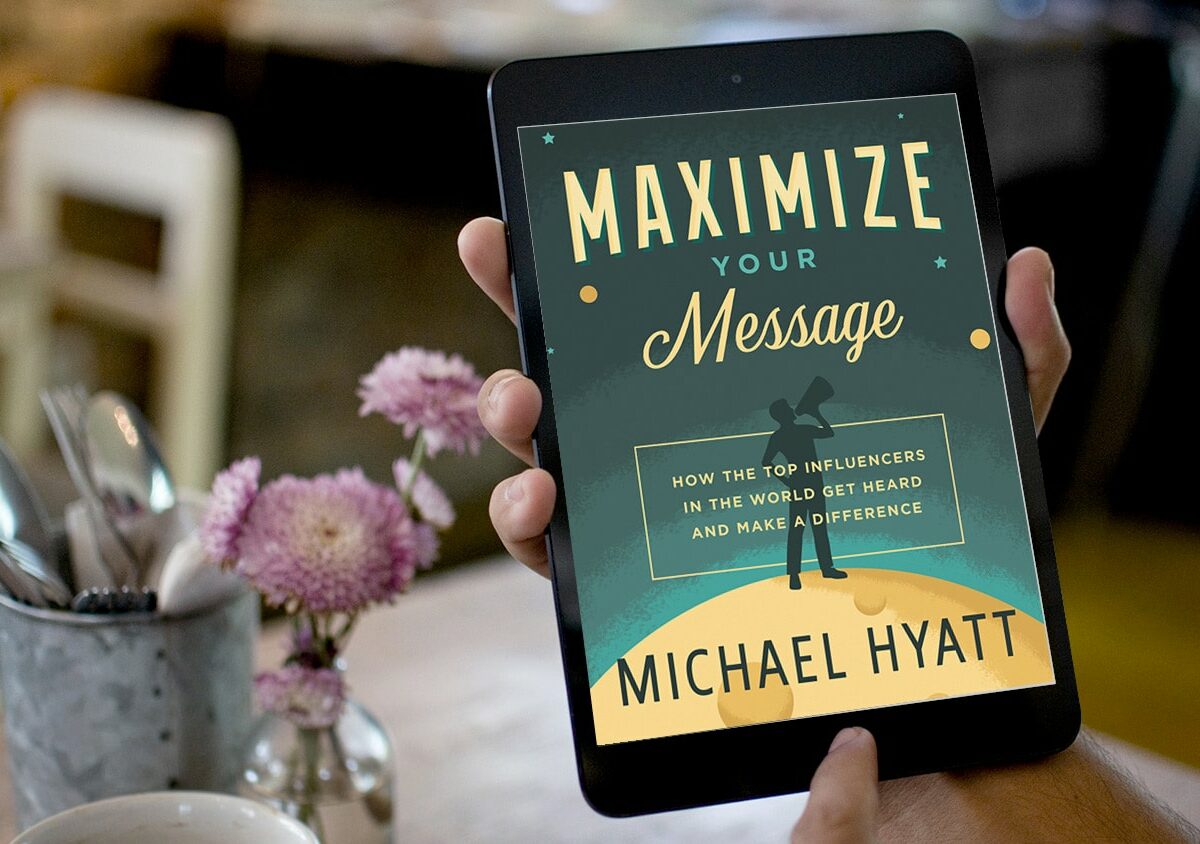4 Reasons Twitter, Facebook, and Instagram Are Making the World a Better Place
It’s popular to complain about social media and talk about how it is destroying our culture, but what if the exact opposite is true?
I joined Twitter on April 6, 2008. A friend urged me to check it out. He was already using it and loved it. So after some initial eye-rolling, I tried it and fell in love with the medium too.
It wasn’t long at all before I discovered that Twitter is one of the most powerful communication tools ever invented. It also wasn’t long before I got an earful from critics who said social media was bad news.
I was prepared for this. I heard similar things when I started blogging four years earlier—even from people in my own company.
As the CEO of Thomas Nelson, I blogged and encouraged my employees to do the same. But our corporate lawyers were worried if our employees began blogging it would tank the company, which was then publicly traded.
But we blogged on and the sky stayed in place. Nothing terrible happened. Instead, our editors and marketing teams became fluent, and blogging became a competitive advantage for us in author acquisitions and book sales.
I suspected the same thing would happen with social media.
We started hearing early on with Facebook and other platforms how it would revolutionize marketing. It took a few years for that to materialize, but I wanted my people on the cutting edge, and it served us well. Again, it became a competitive advantage for us in author acquisitions and book sales.
There are legitimate concerns with new technologies, including social media. But critics tend to only see the negative end of the tradeoff, blow things out of proportion, and then fail to even notice the positives.
But there are many positives. In fact, the critics have things exactly backward. Here are four counterintuitive reasons social media is making the world a better place:
- Social media can encourage generosity. I have watched the shift in myself, my family, and my friends. Contrary to popular opinion, social media does not promote narcissism. Unless we’re talking about the Kardashians, it doesn’t reward it. Takers are rarely successful in attracting followers, fans, or readers. Instead, Twitter, Facebook, Instagram, and blogs reward “givers”—people who are generous and share.
- Selfies can create self-awareness. No, we are not the first generation of people to take selfies. Self-portraits, whether in painting or in in photography, have a long tradition. While this may be evidence of narcissism—or even contribute toward it—in healthy individuals it simply leads to self-awareness. And that is a good thing.
-
Virtual relationships can enhance real relationships. If the only friends you have are on Facebook, that is certainly unhealthy. But apart from the occasional recluse you read about in the media, I don’t know of a single person where this is true. Instead, social media allows you to keep up with the moments people experience and don’t get a chance to share in real life. It helps us stay current with and connected to the people that matter most to us.
-
A focus on positive experiences can contribute to a healthy outlook. I often hear people complain that people in social media only report their positive experiences. Certainly, it can be unhealthy if we are prone to compare ourselves with others. However, noticing and appreciating our positive experiences can contribute to a high level of overall happiness.
I’ve been blogging since 2004, and I’ve been on Facebook, Twitter, and Instagram since 2007, 2008, and 2011. I’ve seen plenty of negative things, but I can’t say even one of them was caused by WordPress, Facebook, Twitter, or Instagram.
When unhealthy, obsessive people with lousy people skills engage with social media, we shouldn’t be surprised to find unhealthy, obsessive, and petty behavior. But that’s a user issue.
What I find inspiring are all the people who use social media to grow professionally, relationally, and personally. And I bet there are more of those than the rest.
Disclosure of Material Connection: Some of the links in the post above are “affiliate links.” This means if you click on the link and purchase the item, we will receive an affiliate commission. Regardless, we only recommend products or services we use and believe will add value to our readers. We are disclosing this in accordance with the Federal Trade Commission’s 16 CFR, Part 255: “Guides Concerning the Use of Endorsements and Testimonials in Advertising.









